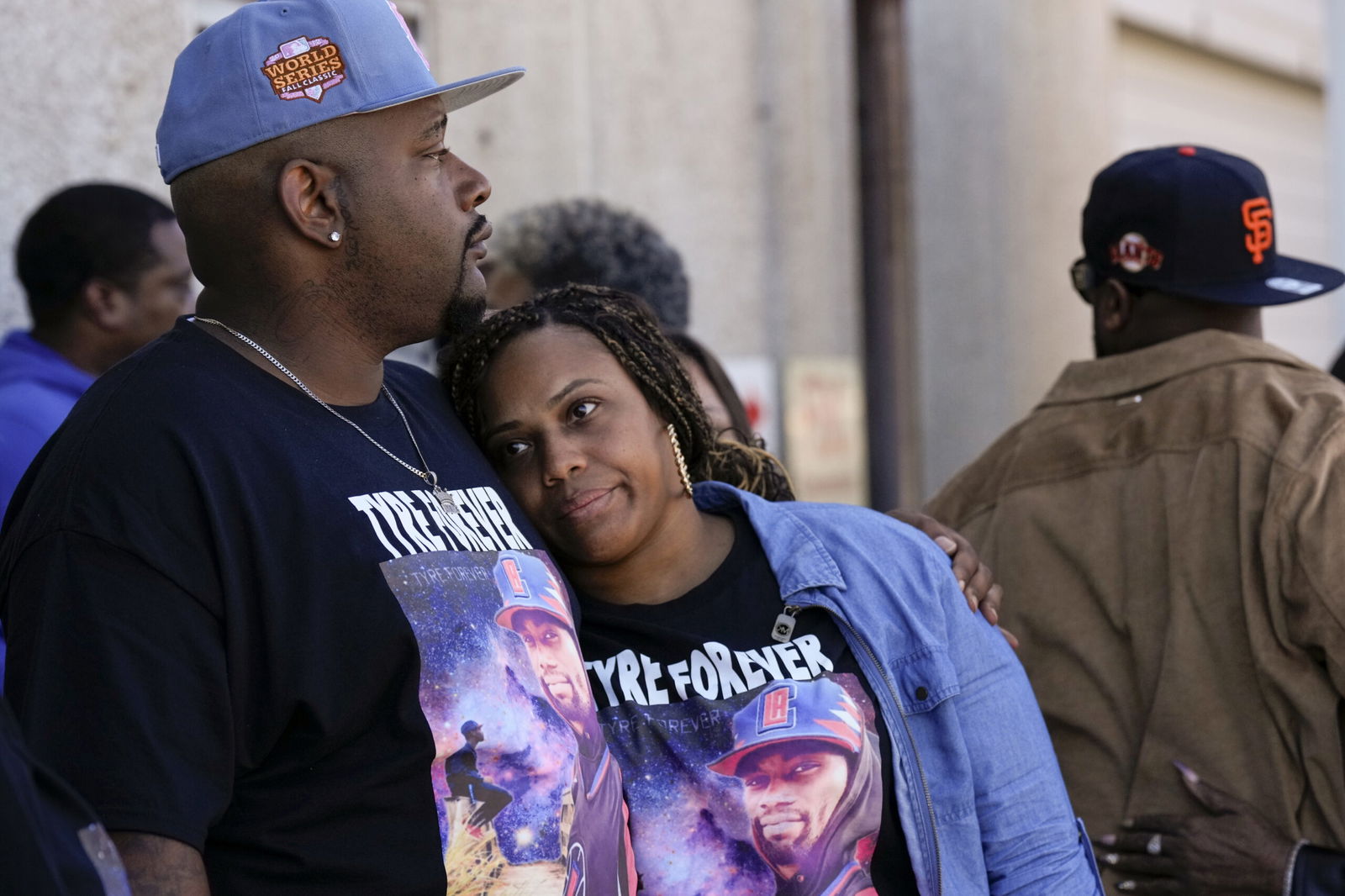Expert testifies that repeated strikes to Tyre Nichols’ head were unnecessary and excessive

By ADRIAN SAINZ
Associated Press
MEMPHIS, Tenn. (AP) — A police training expert testifying Saturday as a defense witness in the trial of three former Memphis officers charged in the fatal beating of Tyre Nichols acknowledged that kicks and punches to Nichols’ head were unnecessary and excessive.
Don Cameron took the stand in the trial of Tadarrius Bean, Demetrius Haley and Justin Smith, who have pleaded not guilty to state charges including second-degree murder. They already face the prospect of years in prison after they were convicted of federal charges last year.
Cameron and a series of other witnesses testified before defense lawyers rested their case late Saturday. The three officers did not testify in their own defense. The trial resumes Monday with jury instructions and closing arguments.
Nichols, a 29-year-old Black man, fled a January 2023 traffic stop after he was yanked out of his car, pepper-sprayed and hit with a Taser. Five officers who are also Black caught up with him and punched, kicked and hit Nichols with a police baton, struggling to handcuff him as he called out for his mother near his home.
Footage of the beating captured by a police pole camera also showed the officers milling about, talking and laughing as Nichols struggled. His death led to nationwide protests, calls for police reforms in the U.S., and intense scrutiny of police in Memphis, a majority-Black city.
The officers are charged with second-degree murder, aggravated assault, aggravated kidnapping, official misconduct and official oppression. Prosecutors have argued that the officers used excessive force in trying to handcuff Nichols. The officers also had a duty to intervene and stop the beating and tell medical personnel that Nichols had been struck in the head, but they failed to do so, prosecutors say.
Former Memphis officers Desmond Mills Jr. and Emmitt Martin also were charged in the case. They have agreed to plead guilty to the state charges and are not standing trial. They also pleaded guilty in federal court, where sentencing for all five officers is pending.
Defense attorneys have sought to chip away at accusations that the officers used unnecessary force to subdue Nichols. They have argued that Nichols was actively resisting arrest by running away and failing to give his hands to officers so that he could be handcuffed. They also have argued that their use of force complied with police department policies.
Cameron was called to the stand by the defense lawyer for Haley, who was at the traffic stop and arrived at the location of the beating after Martin kicked and punched Nichols in the head as Nichols was being held by Smith and Bean.
Cameron said Nichols had not yet been handcuffed and Haley used proper force in kicking Nichols once in the arm. The veteran police trainer said Haley kicked Nichols in order to facilitate the handcuffing of Nichols by the other officers.
However, under cross-examination by prosecutor Paul Hagerman, Cameron acknowledged that the punches and kicks by Martin to Nichols’ head were unnecessary, excessive and an example of deadly force. Officers who saw those head blows had a duty to intervene and stop the beating at that point, Cameron said.
The prosecutor also asked Cameron about Haley’s comment to “beat that man” as he got out of his car and approached Nichols. Cameron said he believed Haley made the comment in order to get Nichols to comply with being handcuffed after Nichols repeatedly ignored expletive-laced orders to do so.
The defense has said that the officers’ vision was impaired because of the repeated deployment of pepper spray. Martin Zummach, Smith’s lawyer, asked Cameron if officers have a duty intervene if they don’t actually see unnecessary force being applied.
“If they can’t see it, they can’t intervene,” Cameron said.
Mills, who hit Nichols three times with a police baton, testified Tuesday that he regrets his failure to stop the beating, which led to Nichols’ death three days later from blunt-force trauma. Dr. Marco Ross, the medical examiner who performed the autopsy, testified Wednesday that Nichols suffered tears and bleeding in the brain.
The five officers were part of a crime suppression team called the Scorpion Unit that since has been disbanded. The team targeted drugs, illegal guns and violent offenders with the goal of amassing arrests, while sometimes using force against unarmed people
The trial comes months after the U.S. Justice Department said in December that a 17-month investigation found that the Memphis Police Department uses excessive force and discriminates against Black people.




